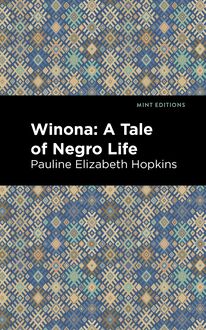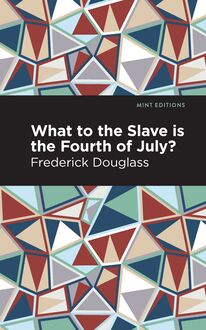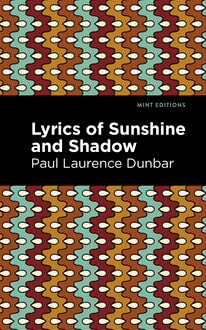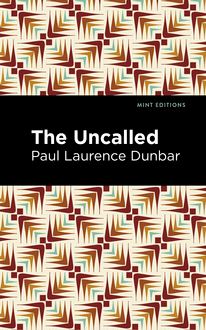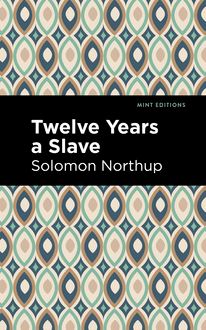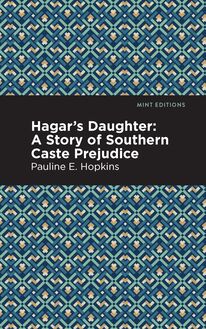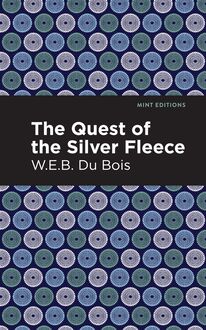-
 Univers
Univers
-
 Ebooks
Ebooks
-
 Livres audio
Livres audio
-
 Presse
Presse
-
 Podcasts
Podcasts
-
 BD
BD
-
 Documents
Documents
-
- Cours
- Révisions
- Ressources pédagogiques
- Sciences de l’éducation
- Manuels scolaires
- Langues
- Travaux de classe
- Annales de BEP
- Etudes supérieures
- Maternelle et primaire
- Fiches de lecture
- Orientation scolaire
- Méthodologie
- Corrigés de devoir
- Annales d’examens et concours
- Annales du bac
- Annales du brevet
- Rapports de stage
La lecture à portée de main
Vous pourrez modifier la taille du texte de cet ouvrage
Découvre YouScribe en t'inscrivant gratuitement
Je m'inscrisDécouvre YouScribe en t'inscrivant gratuitement
Je m'inscrisEn savoir plus
Vous pourrez modifier la taille du texte de cet ouvrage
En savoir plus

Description
The Marrow of Tradition (1901) is a historical novel by African American author, lawyer, and political activist Charles Chesnutt. Based on the Wilmington Insurrection of 1898—in which a group of white supremacists rioted and overthrew the elected government of Wilmington, North Carolina, killing hundreds of African Americans and displacing thousands more—The Marrow of Tradition follows two interconnected families on opposite sides of the violence.
Set in the fictional city of Wellington, the story begins with Major Carteret, a white newspaper owner whose colleagues and powerful peers are growing increasingly outraged by widespread condemnation of local lynchings. At the same time, a black physician named William Miller is establishing a local medical practice while settling into married life with his wife, Janet, the unacknowledged half-sister of Major Carteret’s wife. When Polly Ochiltree, a local white woman, is murdered, a black servant named Sandy Campbell is initially accused. When the identity of the true killer—a white aristocrat—is discovered, however, and when authorities fail to arrest him, the racial tensions dominating Wellington reach their breaking point. The Marrow of Tradition is a harrowing story of family, race, and identity which brilliantly dissects the historical events of the Wilmington Insurrection without sensationalizing them. Although Chesnutt hoped that his book would help to improve race relations in the United States, the book was a commercial and critical failure. For readers today, however, the novel is a picture of how far we have come, and a chilling reminder of how far we have left to go.
With a beautifully designed cover and professionally typeset manuscript, this edition of Charles Chesnutt’s The Marrow of Tradition is a classic of African American literature reimagined for modern readers.
Sujets
Informations
| Publié par | Mint Editions |
| Date de parution | 08 décembre 2020 |
| Nombre de lectures | 0 |
| EAN13 | 9781513274195 |
| Langue | English |
| Poids de l'ouvrage | 2 Mo |
Informations légales : prix de location à la page 0,0500€. Cette information est donnée uniquement à titre indicatif conformément à la législation en vigueur.
Extrait
The Marrow of Tradition
Charles W. Chesnutt
The Marrow of Tradition was first published in 1901.
This edition published by Mint Editions 2021.
ISBN 9781513269191 | E-ISBN 9781513274195
Published by Mint Editions®
minteditionbooks.com
Publishing Director: Jennifer Newens
Design & Production: Rachel Lopez Metzger
Typesetting: Westchester Publishing Services
C ONTENTS 1. A T B REAK OF D AY 2. T HE C HRISTENING P ARTY 3. T HE E DITOR AT W ORK 4. T HEODORE F ELIX 5. A J OURNEY S OUTHWARD 6. J ANET 7. T HE O PERATION 8. T HE C AMPAIGN D RAGS 9. A W HITE M AN ’ S “N IGGER ” 10. D ELAMERE P LAYS A T RUMP 11. T HE B ABY AND THE B IRD 12. A NOTHER S OUTHERN P RODUCT 13. T HE C AKEWALK 14. T HE M AUNDERINGS OF O LD M RS . O CHILTREE 15. M RS . C ARTERET S EEKS AN E XPLANATION 16. E LLIS T AKES A T RICK 17. T HE S OCIAL A SPIRATIONS OF C APTAIN M C B ANE 18. S ANDY S EES H IS O WN H A ’ NT 19. A M IDNIGHT W ALK 20. A S HOCKING C RIME 21. T HE N ECESSITY OF AN E XAMPLE 22. H OW N OT TO P REVENT A L YNCHING 23. B ELLEVIEW 24. T WO S OUTHERN G ENTLEMEN 25. T HE H ONOR OF A F AMILY 26. T HE D ISCOMFORT OF E LLIS 27. T HE V AGARIES OF THE H IGHER L AW 28. I N S EASON AND O UT 29. M UTTERINGS OF THE S TORM 30. T HE M ISSING P APERS 31. T HE S HADOW OF A D REAM 32. T HE S TORM BREAKS 33. I NTO THE L ION ’ S J AWS 34. T HE V ALLEY OF THE S HADOW 35. “M INE E NEMY , O M INE E NEMY !” 36. F IAT J USTITIA 37. T HE S ISTERS
Chapter 1
A T B REAK OF D AY
“ S tay here beside her, major. I shall not he needed for an hour yet. Meanwhile I’ll go downstairs and snatch a bit of sleep, or talk to old Jane.”
The night was hot and sultry. Though the windows of the chamber were wide open, and the muslin curtains looped back, not a breath of air was stirring. Only the shrill chirp of the cicada and the muffled croaking of the frogs in some distant marsh broke the night silence. The heavy scent of magnolias, overpowering even the strong smell of drugs in the sickroom, suggested death and funeral wreaths, sorrow and tears, the long home, the last sleep. The major shivered with apprehension as the slender hand which he held in his own contracted nervously and in a spasm of pain clutched his fingers with a viselike grip.
Major Carteret, though dressed in brown linen, had thrown off his coat for greater comfort. The stifling heat, in spite of the palm-leaf fan which he plied mechanically, was scarcely less oppressive than his own thoughts. Long ago, while yet a mere boy in years, he had come back from Appomattox to find his family, one of the oldest and proudest in the state, hopelessly impoverished by the war,—even their ancestral home swallowed up in the common ruin. His elder brother had sacrificed his life on the bloody altar of the lost cause, and his father, broken and chagrined, died not many years later, leaving the major the last of his line. He had tried in various pursuits to gain a foothold in the new life, but with indifferent success until he won the hand of Olivia Merkell, whom he had seen grow from a small girl to glorious womanhood. With her money he had founded the Morning Chronicle, which he had made the leading organ of his party and the most influential paper in the State. The fine old house in which they lived was hers. In this very room she had first drawn the breath of life; it had been their nuptial chamber; and here, too, within a few hours, she might die, for it seemed impossible that one could long endure such frightful agony and live.
One cloud alone had marred the otherwise perfect serenity of their happiness. Olivia was childless. To have children to perpetuate the name of which he was so proud, to write it still higher on the roll of honor, had been his dearest hope. His disappointment had been proportionately keen. A few months ago this dead hope had revived, and altered the whole aspect of their lives. But as time went on, his wife’s age had begun to tell upon her, until even Dr. Price, the most cheerful and optimistic of physicians, had warned him, while hoping for the best, to be prepared for the worst. To add to the danger, Mrs. Carteret had only this day suffered from a nervous shock, which, it was feared, had hastened by several weeks the expected event.
Dr. Price went downstairs to the library, where a dim light was burning. An old black woman, dressed in a gingham frock, with a red bandana handkerchief coiled around her head by way of turban, was seated by an open window. She rose and curtsied as the doctor entered and dropped into a willow rocking-chair near her own.
“How did this happen, Jane?” he asked in a subdued voice, adding, with assumed severity, “You ought to have taken better care of your mistress.”
“Now look a-hyuh, Doctuh Price,” returned the old woman in an unctuous whisper, “you don’ wanter come talkin’ none er yo’ foolishness ’bout my not takin’ keer er Mis’ ’Livy. She never would ’a’ said sech a thing! Seven er eight mont’s ago, w’en she sent fer me, I says ter her, says I:—
“‘Lawd, Lawd, honey! You don’ tell me dat after all dese long w’ary years er waitin’ de good Lawd is done heared yo’ prayer an’ is gwine ter sen’ you de chile you be’n wantin’ so long an’ so bad? Bless his holy name! Will I come an’ nuss yo’ baby? Why, honey, I nussed you, an’ nussed yo’ mammy thoo her las’ sickness, an’ laid her out w’en she died. I wouldn’ let nobody e’se nuss yo’ baby; an’ mo’over, I’m gwine ter come an’ nuss you too. You’re young side er me, Mis’ ’Livy, but you’re ove’ly ole ter be havin’ yo’ fus’ baby, an’ you’ll need somebody roun’, honey, w’at knows all ’bout de fam’ly, an’ deir ways an’ deir weaknesses, an’ I don’ know who dat’d be ef it wa’n’t me.’
“‘’Deed, Mammy Jane,’ says she, ’dere ain’ nobody e’se I’d have but you. You kin come ez soon ez you wanter an’ stay ez long ez you mineter.’
“An hyuh I is, an’ hyuh I’m gwine ter stay. Fer Mis’ ’Livy is my ole mist’ess’s daughter, an’ my ole mist’ess wuz good ter me, an’ dey ain’ none er her folks gwine ter suffer ef ole Jane kin he’p it.”
“Your loyalty does you credit, Jane,” observed the doctor; “but you haven’t told me yet what happened to Mrs. Carteret to-day. Did the horse run away, or did she see something that frightened her?”
“No, suh, de hoss didn’ git skeered at nothin’, but Mis’ ’Livy did see somethin’, er somebody; an’ it wa’n’t no fault er mine ner her’n neither,—it goes fu’ther back, suh, fu’ther dan dis day er dis year. Does you ’member de time w’en my ole mist’ess, Mis’ ’Livy upstairs’s mammy, died? No? Well, you wuz prob’ly ’way ter school den, studyin’ ter be a doctuh. But I’ll tell you all erbout it.
“Wen my ole mist’ess, Mis’ ’Liz’beth Merkell,—an’ a good mist’ess she wuz,—tuck sick fer de las’ time, her sister Polly—ole Mis’ Polly Ochiltree w’at is now—come ter de house ter he’p nuss her. Mis’ ’Livy upstairs yander wuz erbout six years ole den, de sweetes’ little angel you ever laid eyes on; an’ on her dyin’ bed Mis’ ’Liz’beth ax’ Mis’ Polly fer ter stay hyuh an’ take keer er her chile, an’ Mis’ Polly she promise’. She wuz a widder fer de secon’ time, an’ didn’ have no child’en, an’ could jes’ as well come as not.
“But dere wuz trouble after de fune’al, an’ it happen’ right hyuh in dis lib’ary. Mars Sam wuz settin’ by de table, w’en Mis’ Polly come downstairs, slow an’ solemn, an’ stood dere in de middle er de flo’, all in black, till Mars Sam sot a cheer fer her.
“‘Well, Samuel,’ says she, ‘now dat we’ve done all we can fer po’ ’Liz’beth, it only ’mains fer us ter consider Olivia’s future.’
“Mars Sam nodded his head, but didn’ say nothin’.
“‘I don’ need ter tell you,’ says she,’ dat I am willin’ ter carry out de wishes er my dead sister, an’ sac’ifice my own comfo’t, an’ make myse’f yo’ housekeeper an’ yo’ child’s nuss, fer my dear sister’s sake. It wuz her dyin’ wish, an’ on it I will ac’, ef it is also yo’n.’
“Mars Sam didn’ want Mis’ Polly ter come, suh; fur he didn’ like Mis’ Polly. He wuz skeered er Miss Polly.”
“I don’t wonder,” yawned the doctor, “if she was anything like she is now.”
“Wuss, suh, fer she wuz younger, an’ stronger. She always would have her say, no matter ’bout what, an’ her own way, no matter who ’posed her. She had already be’n in de house fer a week, an’ Mars Sam knowed ef she once come ter stay, she’d be de mist’ess of eve’ybody in it an’ him too. But w’at could he do but say yas?
“‘Den it is unde’stood, is it,’ says Mis’ Polly, w’en he had spoke, ’dat I am ter take cha’ge er de house?’
“‘All right, Polly,’ says Mars Sam, wid a deep sigh.
“Mis’ Polly ’lowed he wuz sighin’ fer my po’ dead mist’ess, fer she didn’ have no idee er his feelin’s to’ds her,—she alluz did ’low dat all de gent’emen wuz in love wid ’er.
“‘You won’ fin’ much ter do,’ Mars Sam went on, ’fer Julia is a good housekeeper, an’ kin ten’ ter mos’ eve’ything, under yo’ d’rections.’
“Mis’ Polly stiffen’ up like a ramrod. ‘It mus’ be unde’stood, Samuel,’ says she, ’dat w’en I ’sumes cha’ge er yo’ house, dere ain’ gwine ter be no ’vided ’sponsibility; an’ as fer dis Julia, me an’ her couldn’ git ’long tergether nohow. Ef I stays, Julia goes.’
“Wen Mars Sam beared dat, he felt better, an’ ’mence’ ter pick up his courage. Mis’ Polly had showed her ban’ too plain. My mist’ess hadn’ got col’ yit, an’ Mis’ Polly, who’d be’n a widder fer two years dis las’ time, wuz already fig’rin’ on takin’ her place fer good, an’ she did n! want no other woman roun’ de house dat Mars Sam might take a’ intrus’ in.
“‘My dear Polly,’ says Mars Sam, quite determine’, ‘I couldn’ possibly sen’ Julia ’way. Fac’ is, I couldn’ git ’long widout Julia. She’d be’n runnin’ dis house like clockwo’k befo’ you come, an’ I likes her ways. My dear, dead ’Liz’beth sot a heap er sto’ by Julia, an’ I’m gwine ter keep her here fer ’Liz’beth’s sake.’
“Mis’ Polly’s eyes flash’ fire.
“‘Ah,’ says she,’ I see—I see! You perfers her housekeepin’ ter mine, indeed! Dat
-
 Univers
Univers
-
 Ebooks
Ebooks
-
 Livres audio
Livres audio
-
 Presse
Presse
-
 Podcasts
Podcasts
-
 BD
BD
-
 Documents
Documents
-
Jeunesse
-
Littérature
-
Ressources professionnelles
-
Santé et bien-être
-
Savoirs
-
Education
-
Loisirs et hobbies
-
Art, musique et cinéma
-
Actualité et débat de société
-
Jeunesse
-
Littérature
-
Ressources professionnelles
-
Santé et bien-être
-
Savoirs
-
Education
-
Loisirs et hobbies
-
Art, musique et cinéma
-
Actualité et débat de société
-
Actualités
-
Lifestyle
-
Presse jeunesse
-
Presse professionnelle
-
Pratique
-
Presse sportive
-
Presse internationale
-
Culture & Médias
-
Action et Aventures
-
Science-fiction et Fantasy
-
Société
-
Jeunesse
-
Littérature
-
Ressources professionnelles
-
Santé et bien-être
-
Savoirs
-
Education
-
Loisirs et hobbies
-
Art, musique et cinéma
-
Actualité et débat de société
- Cours
- Révisions
- Ressources pédagogiques
- Sciences de l’éducation
- Manuels scolaires
- Langues
- Travaux de classe
- Annales de BEP
- Etudes supérieures
- Maternelle et primaire
- Fiches de lecture
- Orientation scolaire
- Méthodologie
- Corrigés de devoir
- Annales d’examens et concours
- Annales du bac
- Annales du brevet
- Rapports de stage

